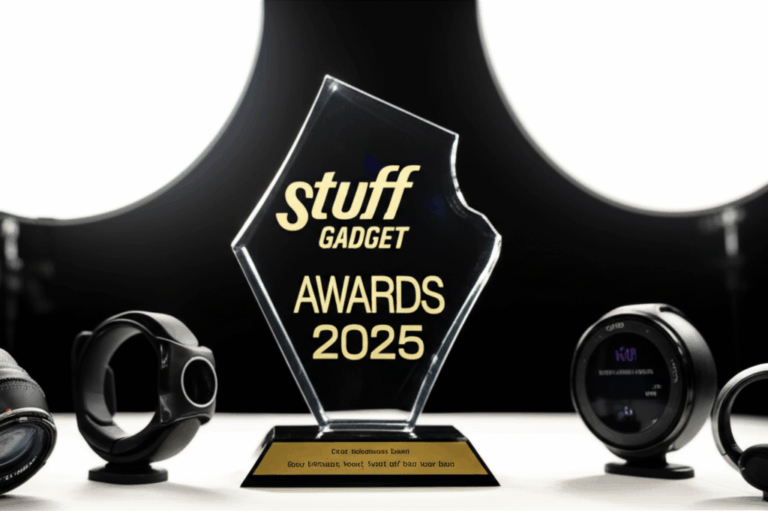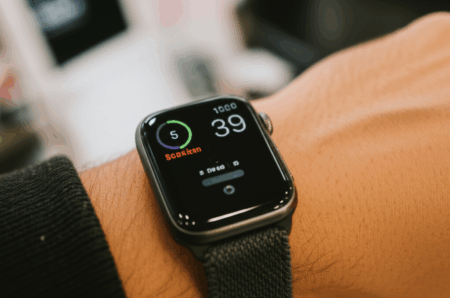The fitness technology landscape is in a constant state of evolution, pushing the boundaries of what’s possible in personal health and wellness. From sophisticated wearables that offer granular insights into our physiology to immersive home gym experiences powered by artificial intelligence, 2025 has proven to be a pivotal year for innovation. This year’s Stuff Gadget Awards celebrate the devices that have not only kept pace with these advancements but have actively shaped the future of how we track, train, and optimize our health.
The industry has seen significant strides in making fitness more personalized, data-driven, and seamlessly integrated into our daily lives. Wearable technology, mobile exercise apps, and data-driven training have cemented their place in the top fitness trends for 2025, according to the American College of Sports Medicine (ACSM). As we delve into the standout fitness tech of the year, it’s clear that the focus is on smarter, more accurate, and increasingly specialized tools designed to elevate every aspect of our fitness journeys.
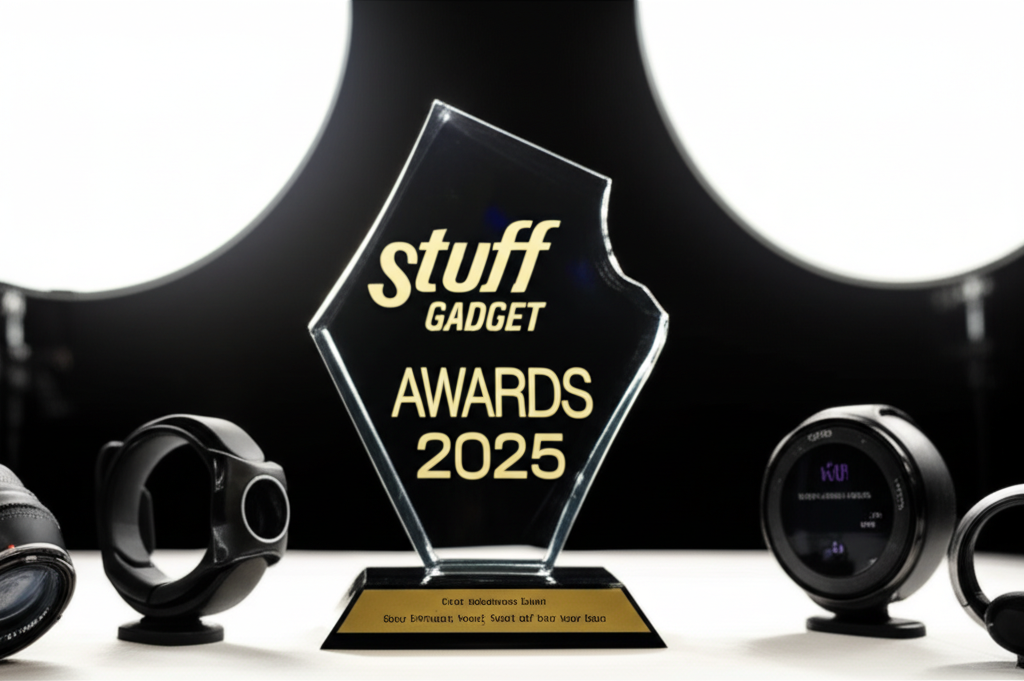
The Evolving Landscape of Fitness Tech
The rapid advancements in fitness technology reflect a broader societal shift towards holistic wellness, where physical activity is intricately linked with recovery, mental well-being, and personalized insights. In 2025, we’ve witnessed wearable technology go beyond basic step counting, offering advanced metrics like heart rate variability (HRV), recovery tracking, sleep monitoring, and real-time performance data. AI and machine learning are revolutionizing personal training by creating highly customizable workout and nutrition plans that adapt in real time to individual progress and needs.
This year has also seen a blurring of lines between consumer fitness gadgets and medical-grade devices, with many wearables incorporating features like ECG monitoring and blood pressure tracking with increasing accuracy. The integration of virtual and augmented reality (VR/AR) is making workouts more immersive and engaging, transforming the traditional training experience.
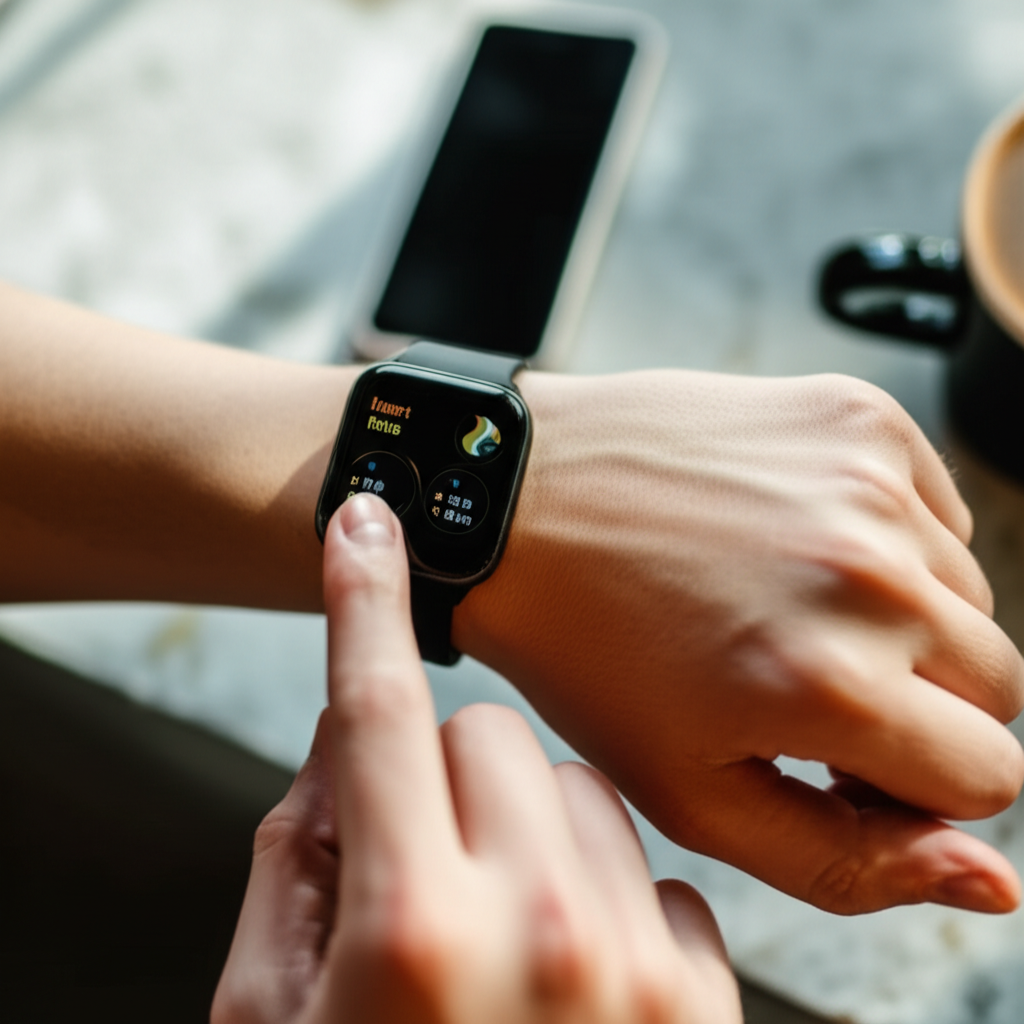
Smartwatches: The Ultimate Health Hub on Your Wrist
Smartwatches continue to dominate the wearable tech scene, evolving into comprehensive health and fitness companions. These devices are no longer just for notifications; they are powerful tools providing in-depth physiological data and personalized coaching.
Expected Frontrunners
For the Stuff Gadget Awards 2025, the competition in the smartwatch category was exceptionally fierce. While the Apple Watch Series 10 was recognized as the Smartwatch of the Year in 2024, the industry has continued to refine its offerings. Google’s Pixel Watch 4, with its comprehensive AI-based health and fitness features, has made a strong impression. For Android users, the Samsung Galaxy Watch Ultra stood out, praised for its rugged design, excellent battery life, and robust fitness tools, proving a formidable challenger to its competitors.
However, in the highly competitive “Fitness Watch or Tracker of the Year” category for the Stuff Gadget Awards 2025, the Garmin Fenix 8 AMOLED emerged victorious. This latest iteration of Garmin’s renowned adventure tool has received transformative upgrades, including a “razor-sharp AMOLED screen” that enhances the user experience without compromising its “week-long stamina”. Its built-in microphone and speaker introduce voice activation and memo tools, a welcome addition to Garmin’s already comprehensive multisport line-up. The Fenix 8 AMOLED offers adaptive coaching, workout recommendations, training readiness monitoring, and advanced navigation features like ClimbPro previews and offline maps, solidifying its status as a top-tier fitness companion.
Other notable contenders in the smartwatch space for 2025 include the Apple Watch Series 11, replacing the Series 10, and the Garmin Venu 4, lauded for its balanced blend of high-performance features, wearability, and accurate tracking at a reasonable price point.

Fitness Trackers: Dedicated Data for Every Workout
Beyond full-fledged smartwatches, dedicated fitness trackers and smart rings continue to carve out their niche by offering focused health monitoring in a more discreet form factor.
Key Innovations to Watch
Fitness trackers in 2025 provide increasingly precise data for activity, sleep, and recovery. The Fitbit Charge 6, for instance, remains a top pick, noted for its advanced tracking capabilities, cross-platform support, and suitability for beginners. Fitbit also introduced an AI-powered personal coach developed using Google’s Gemini technology, designed to act as a comprehensive fitness trainer, sleep counselor, and health advisor.
Smart rings have gained significant traction, offering unobtrusive monitoring, especially for sleep and recovery. The Oura Ring 4, known for its robust sleep and activity tracking tools, continues to be a leader in this segment. The Samsung Galaxy Ring also emerged as a strong contender, particularly for Android users, with its excellent sleep tracking and unique phone controls. For those seeking budget-friendly options, the Xiaomi Smart Band 9 maintains its reputation as a “king of cheap fitness trackers,” offering solid features at an accessible price point.
Another interesting innovation is the screenless WHOOP 5.0, which excels in personalized coaching and in-depth analysis, making it a strong choice for those who prioritize data insights and recovery guidance, albeit with a subscription model.
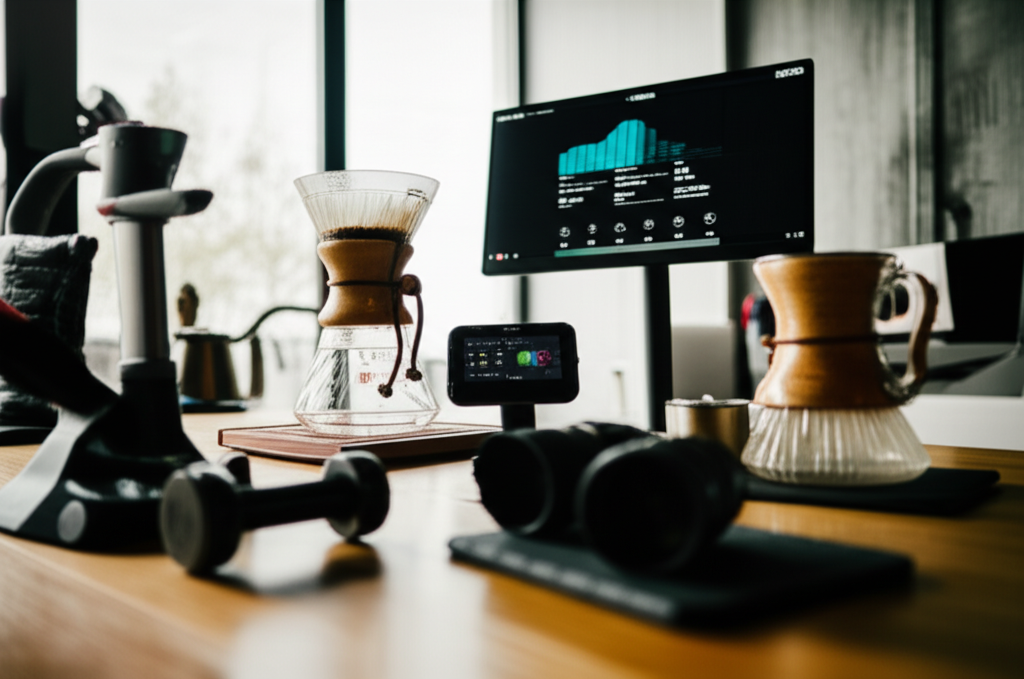
Smart Home Gym Equipment: Bringing the Studio Home
The home fitness revolution continues to accelerate, with smart home gym equipment offering comprehensive workout experiences that rival traditional gyms. These systems integrate advanced technology to provide guided workouts, real-time feedback, and personalized training plans.
Integrated Experiences
Tonal remains a dominant force in smart home gyms, recognized for its wall-mounted design, digital weight system, and AI-powered form feedback. The Tonal 2, with increased resistance capabilities, offers a full gym’s worth of strength training and a virtual personal trainer in one sleek package.
Tempo provides another compelling option, distinguishing itself by utilizing physical weights alongside a smart screen and tracking features. Its AI-powered app offers real-time feedback on form and performance. Fitness mirrors like the Echelon Reflect also continue to be popular, transforming into virtual personal training screens that blend seamlessly into home aesthetics. Other innovative solutions include the Innodigym P1 Strength Station and the Speediance Gym Monster, catering to various fitness levels and preferences. These systems are increasingly focused on integrated experiences, providing comprehensive workout ecosystems at home.

Recovery and Wellness Tech: Optimizing Performance
Beyond active training, fitness tech in 2025 places a significant emphasis on recovery and overall wellness, acknowledging their crucial role in performance optimization and long-term health.
Beyond the Workout
Smart scales have become more sophisticated, moving beyond simple weight measurement to offer detailed body composition analysis. Devices like the Withings Body Scan provide an “epitome of data insights,” including ECG readings, body fat percentage, muscle mass, bone density, and hydration status. Renpho and Eufy also offer highly-rated smart scales that track a multitude of metrics and integrate with popular health apps, providing users with a holistic view of their physical health. The Garmin Index S2 is specifically favored by athletes for its comprehensive data tracking.
Other innovations in wellness tech include smart water bottles that monitor hydration, AI yoga mats that provide posture correction, and smart resistance bands that adjust to your strength. The focus here is on leveraging data to make informed decisions about rest, nutrition, and overall bodily well-being, complementing the active training aspects of fitness.
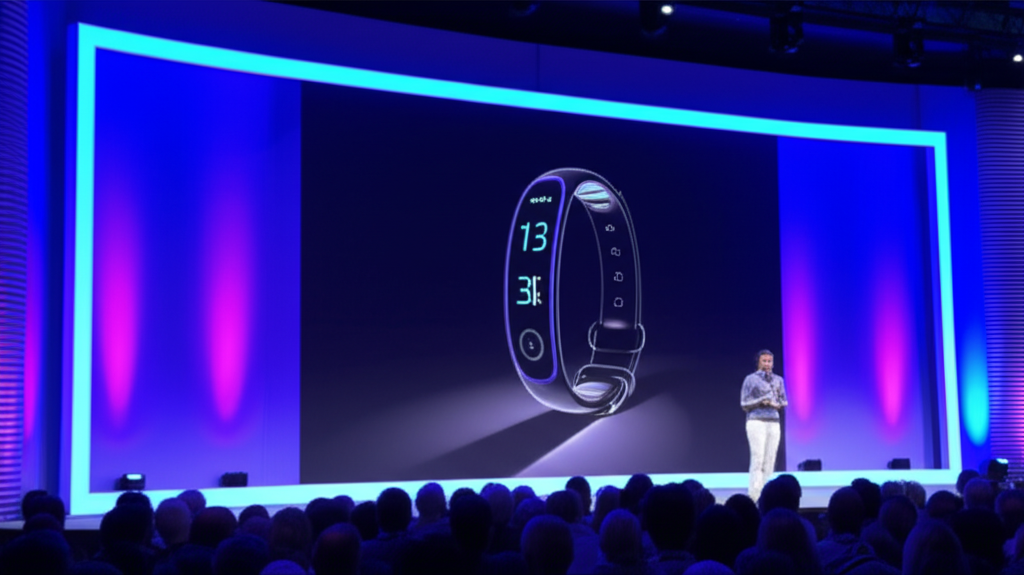
Looking Ahead: What’s Next for Fitness Tech in 2025
The Stuff Gadget Awards 2025 highlight a clear trajectory for fitness technology: increasing personalization, deeper integration of AI, and a more holistic approach to health. The continued development of advanced sensors, combined with intelligent algorithms, promises even more accurate and actionable insights for users. The blurring of lines between fitness and medical devices suggests a future where our wearables could play an even more proactive role in preventative health.
As technology continues to evolve, we can expect fitness tech to become even more intuitive, adaptive, and seamlessly woven into the fabric of our lives, empowering individuals to take greater control of their health and fitness journeys. The future of fitness is undoubtedly smart, connected, and deeply personal.




